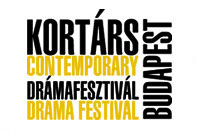Bérczes László (HU)
FOGYASZTÁS VAGY TALÁLKOZÁS?
Rövid előadásom inkább morfondírozás, kérdések felvetése a színházi terek változásaival kapcsolatban:
Vajon amikor azt mondjuk, SZÍNHÁZ, akkor
egy épületre,
egy a világból kivágott egyszeri és meghatározott időre érvényes, egyszeri térre,
egy társulatra,
egy eseményre,
egy az esemény kapcsán meghatározott időre megszülető, játszókból és nézőkből álló alkalmi közösségre stb. gondolunk?
l Vajon kimondható-e az, hogy a hagyományos, nagyszínházi terekben, azaz kukucska-színpadra épülő 600-1200 férőhelyes épületekben nem kizárólag, de elsősorban fogyasztásra szánt produkciók zajlanak?
l Vajon az úgynevezett fogyasztás „bűnös” dolog-e?
l Vajon igaz-e az, hogy az elmúlt évtizedekben egyre jellemzőbb „fekete dobozok” alkalmasabbak a színház egyik eredendő szerepének, a „találkozásnak”, azaz mű, alkotó és befogadó találkozásának megteremtésére?
l Vajon a hagyományos kukucska-színpadon létrejöhet-e ez a találkozás?
l Egyáltalán, vajon ennek a bizonyos találkozásnak megteremtése valóban a színház egyik eredendő feladata?
l Vajon a kortárs szövegek valóban szűk, kicsi terekbe: fekete dobozokba, stúdiókba kerülnek?
l És ha ez így van, ez szomorú „beszorulás” vagy a találkozás lehetőségének kikövetelése?
l Vajon mi az oka annak az egyre jellemzőbb folyamatnak, hogy bizonyos előadások elhagyják mind a hagyományos színházi tereket mind a fekete dobozokat, egyáltalán, bármely színházépületet, és „kilépnek az életbe”?
l Ez utóbbi tény vajon „lealacsonyodás” azaz a színház iránt nem érdeklő emberek szintjének megérintése, illetve a „Mohamed-Hegy”-effektus?
l Ez a kivonulás vajon a mindenáron-találkozás következetes megvalósítása és a színházi nyelv megújítása lenne?
l Vajon e folyamatoknak köze van-e az úgynevezett rendszerváltáshoz vagy ez egy a világdrámát-világszínházat meghatározó általánosabb érvényű folyamat?
l Stb.

















